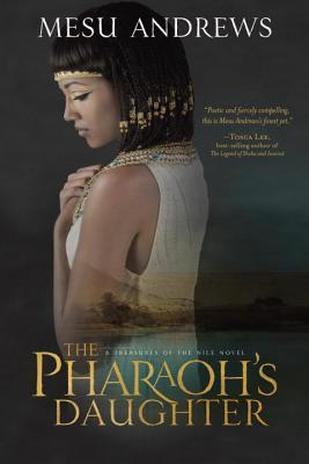 Interview by Brock Eastman Featuring The Pharaoh's Daughter Long before Moses would lead the Israelites out of Egyptian slavery, he was a three-month-old baby, placed in a basket and set adrift on the dangerous Nile River. That precarious journey led a Hebrew slave child into the arms of the Pharaoh’s daughter. Who was the woman who drew this child out of the water? What transpired in her life and what influence would she have over the man Moses would become? In The Pharaoh’s Daughter, award-winning author, Mesu Andrews answers these questions as she weaves an intricate tapestry of Egyptian history, biblical fact and her own artful imagination to describe fundamental truths that transcend time and culture. Experience a familiar Old Testament story, for the first time, through the eyes of the Egyptian mother who loved Moses as her own. Andrews begins this epic with a single, haunting image; a girl, terrified and trembling hides alone in a dark closet. Her name is Anippe. She is the daughter of a Pharaoh and the sister of the boy King. Yet with each new identity, she continues to hide among shadows of fear and doubt, while never understanding her true worth. Devastated by the death of her mother during childbirth, Anippe is terrified to conceive a child and an heir for husband Sebak. Yet she still yearns for motherhood. When she discovers a Hebrew child stowed in a basket on the river, she believes her prayers are answered. Her story has only begun. Her life of royalty is suddenly bound with the fate of the Hebrew slaves, as she struggles to conceal Moses’ true heritage. In The Pharaoh’s Daughter, Andrews invites readers to step back into time and experience a world ripped from the pages of the Bible. With an absolute reverence for scripture and a meticulous examination of historical records, Andrews illuminates the truth of God’s Word in this complex and mesmerizing tale. Discover how God calls out to those who hide in the shadows. Watch as He draws them out of watery depths and into His eternal family. Examine how He changes their names and with it, their hearts. Stand in awe of a hope that can never be lost or stolen. In this beautifully conceived story, Andrews beckons readers to come out of hiding and meet face-to-face with a name-changing, covenant-keeping God. Mesu Andrews’ deep understanding of and love for God's Word brings the biblical world alive for her readers. Her first novel, Love Amid the Ashes won the 2012 ECPA Book of the Year for a Debut Author. Her three subsequent novels, Love's Sacred Song, Love in a Broken Vessel, and In the Shadow of Jezebel all released to great reader enthusiasm. Mesu has been married to her husband Roy for 30 years and they live in the beautiful Pacific Northwest. They have two adult daughters. Brock: Mesu Andrews is carving out a niche for herself with Biblical fiction. The Pharaoh’s Daughter is the first novel in her Treasures of the Nile series and her fifth book to date. Mesu answered our questions about her inspiration, her intriguing characters and her passion for Biblical fiction. What was your inspiration for writing this book? Mesu: Of all the great Old Testament characters, Moses stands alone as the friend of God (Ex. 33:11). That intrigues me. What further intrigued me were the women in Moses’s life—four specifically mentioned. The ancient world was a man’s world, so when women are recorded in written text, I get curious. I suppose it wouldn’t be unusual to mention his mother, but he gave detail about Jochebed’s motivations and thought processes. He elaborated on his sister Miriam’s courage to approach Pharaoh’s daughter in the bulrushes and boldly revealed his Egptian mother’s defiance of Pharaoh’s edict. Later, Moses mentioned his wife, Zipporah, and described her heated reaction when Moses neglected to circumcise his sons. The transparency with which Moses describes these women and the underlying respect—by their mere inclusion in the text—made me want to dig deeper into their history and tell their stories. Brock: Tell us about the main characters. Who are they? What makes them unique? Mesu: We first glimpse Anippe hiding alone in a dark closet, traumatized and trembling after witnessing the death of her mother during childbirth. She’s the daughter of a Pharaoh and sister of a boy who would soon become king. Anippe is plagued by debilitating fear throughout her life, and it builds layer upon layer as she grows into each new role of her life. Terrified to conceive a child and heir for her husband Sebak, she believes the gods answered her prayers when she discovers a Hebrew child stowed in a basket on the river. Her life of royalty is suddenly bound with the fate of the Hebrew slaves, as she struggles to conceal her child’s true heritage. The fertile Nile Delta is home to Egypt’s fiercest military family—the Ramessids. Centuries ago, the Ramessids assisted Pharaoh in ousting the Hyksos—a Canaanite band of tribes—and were rewarded with lush, green estates. They forced the remaining Canaanites, called Abiru (Hebrews), to forced labor on building projects and in the fields. Much of the harvest produced flax for Egypt’s most lucrative export—linen. Mered is the Chief Linen Keeper on the Avaris Estate, where he grew up as slave and companion to the young Master Sebak when Sebak’s parents died in a sweeping plague. The whole estate rejoices when the young master marries King Tut’s sister, but Mered has misgivings about his new mistress, recognizing her little deceptions as warnings of heartache for his master and a dark future for the Hebrews. Brock: Give us one fact about each main character that no one else knows. Mesu: Anippe, though young and impulsive, has a unique talent for designing the exquisite linen robes produced by the Avaris estate. She sketches beautiful designs that the weavers expertly craft into their linen creations. Mered was a Hebrew male slave that smelled like ben tree oil—an Egyptian cosmetic oil to soften dry skin. It was one of his many dichotomies—his need to appear Egyptian for the sake of trading Avaris’s linen and yet remain thoroughly Hebrew in faith and commitment to Yahweh. Brock: In a few sentences what is this book about? Mesu: Experience the story of Moses through the eyes of The Pharaoh’s Daughter who found him. Meet the brave midwives who protected the sons of the Hebrews, the talented young Miriam whose singing soothes the heart of Pharaoh’s grandson, and the young prince who must choose which god he will follow. Brock: How do you believe this story relates to the lives of readers? Mesu: Each of my books has had an overarching theme. Job’s story (Love Amid the Ashes) spoke to those who suffer. Gomer and Hosea’s story (Love in a Broken Vessel) challenged readers to God-sized forgiveness and the promise of God’s grace. The Pharaoh’s Daughter tackles that nagging—sometimes debilitating—emotion of fear. On September 11, 2001, our entire nation experienced fear, but fear was daily reality for the Hebrews in ancient Egypt. Personally, I have grown up afraid—why? I have no idea. I remember being afraid of the dark. Afraid a fire would burn down our house. Afraid of dogs. Afraid of… you name it. As I’m writing this, I’m afraid I’ll run out of coffee creamer. We’re all afraid of something. When The Pharaoh’s Daughter pulled a Hebrew baby from the Nile, I believe she was motivated by fear. This book explores the choices that grew out of her fear and leads the reader through the consequences and victories, the joys and sorrows of those choices—and the faith that frees her from fear’s prison. Brock: What is your favorite genre to write? Mesu: My ONLY genre is biblical fiction. My first love is the study of God’s Word. Biblical novels give me an excuse to keep my nose buried in the Bible and research books! What a joy to share with others both the passion and pleasure of my heart. I am most blessed. Brock: What is the biblical background or basis for the series? Mesu: Exodus 1:1-2:10. The Pharaoh’s Daughter gives a brief background of how Jacob’s family came to dwell in Egypt, but most of the book focuses on Exodus 1:15-2:10, the story of Pharaoh’s edict that the Hebrew midwives kill all Hebrew male babies and Moses’s rescue from the Nile by Pharaoh’s daughter. Brock: How many books are planned for this series? Mesu: Two book are planned for Treasures of the Nile series: The Pharaoh’s Daughter and a book on Miriam, Moses’s sister (as yet untitled). Brock: Any certain research required for the book, or is it all from your imagination? Mesu: LOTS of research, and I LOVE it!!! I must confess, I hated history in high school and college, but I can’t get enough of the historical and biblical research for my novels. It’s actually hard to start writing the book because I enjoy the research so much. I always include an Author’s Note at the end of each book to share how the research helped form the story. Many folks have commented it’s one of their favorite parts of my books because it helps define what’s fact and what’s fiction. Of course, my foremost goal is to send readers back to Scripture to read the Truth. Biblical novels are fiction, after all, and are only intended to stir curiosity for more of God and His Word. Brock: How do you strike the right balance in your book? Mesu: My process is always the same: biblical Truth is foundational, historical fact provides the next layer, and creative fiction fills in the holes. When forming characters (especially the biblical characters), I try to take into account the full counsel of Scripture. Solomon was especially difficult (in Love’s Sacred Song) because he was supposed to be the wisest man who ever lived, but he sure made some stupid life decisions, right? When forming characters and circumstances in The Pharaoh’s Daughter, I had to be especially cautious because there’s so much conflicting historical data regarding Egypt, its kings, its gods, etc. I finally had to choose a few vetted resources and use them exclusively for my historical facts. My editor is a huge help in this area, offering her years of experience as a guide for how Christian readers might receive my interpretations of characters and events. I’m so thankful for the talented team of folks who work alongside to publish my books. Brock: How does it feel to have your work published? Mesu: I’m on book #5, and it’s still surreal to walk into a store and see my name on a book on the shelf. Brock: Why did you choose to focus on a female protagonist? Mesu: Because my editor told me to. ;) Seriously, I struggle to write in a male POV because I struggle to think like a man. My sweet hubby reads all my manuscripts and helps with this area, making sure I don’t have men giggling or doing other ridiculously female things. Brock: Are you working on the next book in the series? Mesu: Yep! The rough draft of Miriam (working title) is currently with my beta readers and will (hopefully) be in my editor’s hands by March 1st. Brock: Can you give us a hint at the next book in the series? Mesu: For all her eighty-six years, Miriam has found complete contentment in her relationship with El Shaddai, but when her brother Moses returns from exile proclaiming God’s new name—Yahweh—troubling doubts plague her. Yahweh no longer speaks in her dreams and the underpinnings of daily routine are shattered by revelations of His power. Her quiet home becomes Moses’s center for Yahweh’s activity, and Miriam begins to yearn for more of God, more of life, more of love. How could it be that Yahweh would ask a faithful, influential woman to stretch beyond her belief—and bless her with uninvited yearning? Brock: Do you plot or outline the entire series before you begin writing, or do your books take on lives of their own? Or is there a combination? Mesu: I’ve now written six novels (including the rough draft, Miriam), and each process has been completely different. The first book was by the seat of my pants—the characters told the story as I typed. With each book, I’ve done more plotting and outlining, but the characters still change the outline as I type, usually necessitating a new outline halfway through the rough draft process. Brock: If your book changed as you wrote it, how is it different than how you originally planned? Mesu: Several of the plot twists come to me as I write. I wouldn’t dare share them here and ruin the surprise. ;) Brock: Were any scenes or characters cut from the book? Can you give an example? Mesu: Actually, about 20% of the book was cut. Yep, it was pretty painful—but necessary. In its final form, The Pharaoh’s Daughter stops when Moses (Mehy—his Egyptian name) is eighteen years old. Originally, the story continued through Exodus 2:11-15, when Moses was forty and defended the Hebrew slave by killing the Egyptian slave master. My editor said telling that part of the story was more about Moses than The Pharaoh’s Daughter. Though I hated to lose all that work, she was absolutely right, so we cut it. It’s a far better story. Brock: How much leeway do you gives yourself with facts in a Historical Genre? Mesu: None. If there’s a discrepancy between my story and Scripture, it’s an oversight, and I apologize. God’s Word is Truth, and it stands as the unalterable foundation of every story. If historical research ever contradicts, I pray it through and often find a reasonable explanation for the seeming contradiction. For instance, when figuring Moses’s age, he would have been born in 1330 BCE. The Pharaoh during that time was King Tut—who was too young when he died to have a daughter. How could I write a story about Pharaoh’s daughter when historical fact made it impossible? Historical data showed that King Tut had sisters—who would have been daughters of Pharaoh Akhenaten. King Tut’s sister is The Pharaoh’s daughter in my story, and I didn’t have to skew history to write God’s Truth. My books aren’t textbooks. They’re fiction. However, I keep the biblical Truth and historical facts as precise as possible. Brock: How do you hope parents will use this book with their kids? Mesu: I’ve had teachers contact me for the free bookmarks on my website because they were using my books in their Lit. classes and wanted to pass out the bookmarks to their kids. Some parents may not feel the subject matter is appropriate for teens under sixteen (Love in a Broken Vessel is about the prophet Hosea marrying the prostitute Gomer). It’s up to the parents to make that call, but The Pharaoh’s Daughter tells about a fourteen-year-old princess who is forced to make some pretty terrifying choices. Our kids are forced to grow up pretty fast these days. Fear is something they’ll face all their lives. I hope this is a story that can help parents and their kids openly discuss how to deal with their fears in a way that honors God. Brock: What do you hope kids take away from The Pharaoh's daughter? Mesu: "Fear is the most fertile ground for faith." Anippe’s fears cause her to deceive and push away those closest to her. All kids lie. Many times it’s because they’re afraid of the consequences that will follow a truthful answer. I pray that Anippe’s story will give kids the courage to trust the Lord—and the love of those around them—enough to live a life of faith. Brock: Where do you like to write? Mesu: In my recliner by the fireplace with a cup of coffee in hand. Brock: Are you a full-time or part-time author/writer? Mesu: I’m a full-time writer. (It still feels funny to call myself an author. It’s too much fun to be a real job.) Brock: How long does it usually take you to write a single book? Mesu: My first book took twelve years. Now, it takes me a year from the time I begin researching the topic to the time my rough draft is complete—and usually another year before the book releases. Brock: What do you hope readers take away from the series? Mesu: I think in both stories of Treasures of the Nile, God is enigmatic to the Hebrew people. He’s been nearly silent for four hundred years, speaking only occasionally through a girl (Miriam) who matures into a faithful prophetess. When Moses returns from exile, proclaiming Yahweh’s new name and His promise of deliverance, the true “Treasures of the Nile” become God’s character and power revealed to His people. Brock: Expound on the spiritual themes in The Pharaoh's Daughter. Mesu: Much of Anippe’s fear stems from a life devoid of real love. 1 John tells us perfect love drives out fear, and this is an important lesson for The Pharaoh’s Daughter. We see the antithesis in Mered, whose love and faith give him a steadfast quality throughout the ups and downs of a Hebrew slave’s existence. Themes of worth, wealth, and true value are also explored, while young Moses (Mehy) must decide which of the many “voices” he’ll listen too—the loudest or the ones proven by peace. Brock: What is your "how I got published" story? Mesu: I was a pastor’s wife from Indiana who spoke at a few women’s conferences a year, and I wanted to publish one Bible study—on Song of Solomon. When I attended my first writer’s conference with this singular goal, I was told by an editor, “I wouldn’t publish a Bible study on Song of Solomon if Billy Graham wrote it, let alone a first-time author without a platform.” That was the kindest feedback I received at that conference. A good friend of mine suggested I write the study as a biblical novel, teaching through a parable—as Jesus taught. She suggested it again, and again, and again. Finally, in 2008 I listened and attended the Mount Hermon fiction mentoring clinic taught by Gayle Roper. I didn’t even know what POV was, but the Revell editor was looking for biblical fiction at that conference and was willing to take a chance on a VERY unproven author. The rest, as they say, is history. No one will ever convince me that getting published is anything but God’s direct intervention. The odds of me getting published—especially in fiction—were astronomical. But my God is out of this world. Brock: When did you realize you wanted to become a writer? Mesu: I’ve never wanted to become a writer. I was compelled to write, and it became my joy. I used to be an off-the-charts extrovert, teaching God’s Word in Bible studies, adult small groups, and women’s conferences. In 2002, my health took a downward turn, and I spent six months in bed. I still needed to share the Word of God somehow, so my laptop became my best friend and the avenue God provided for sharing what He taught me. Sometimes His greatest gifts are those we don’t realize we want. Brock: What are some of the strongest influences on your writing? Mesu: When I started reading biblical novels, there weren’t many to choose from in the Christian market, so I found what I could in the general market. Though the Red Tent isn’t a Christian novel, it is superbly researched and written and made me long for true-to-Scripture biblical novels. I soon found Lynn Austin’s Chronicles of the Kings series and Francine Rivers’ Mark of the Lion series, which are still some of my favorites. Brock: What are your hopes for your future as an author? Mesu: I want to maintain my passion for God’s Word for as long as I write. If my passion for the Word gets lost in the publishing mire or daily stresses of marketing/social media, I’m done. I write to glorify the Word, Who became flesh. If I ever lose that focus, I have nothing worth saying. Brock: In what ways does your faith impact how you approach writing? Mesu: I must personally embrace the lessons my characters experience. If my characters are doing or saying things that the Lord hasn’t made real in my own life and heart, they come off as preachy and fake. Their journey is my journey—not in specific detail, of course. I’m not a shepherdess or prostitute or princess, but I learn the lessons of love, forgiveness, and faith as surely as each of my protagonists learned them. Brock: Coke or Pepsi? Mesu: Diet Pepsi (once in a great while) Brock: Favorite place to vacation? Mesu: Anywhere my kids/grandkids are! Or in our friends’ mountain cabin. Brock: Favorite season? Mesu: Pacific Northwest summer—July-September. Perfection on earth. Brock: Do you have a particular drink or food you consume when you write? Like coco, raspberry tea, animal crackers? Mesu: Coffee w/ hazelnut creamer in the morning. Roasted soy nuts for an afternoon snack Brock: Do you have a favorite Bible verse? Mesu: Zephaniah 3:17 “The Lord your God is with you, the Mighty Warrior who saves. He will take great delight in you; in his love he will no longer rebuke you, but will rejoice over you with singing.” Brock: Favorite pasta dish? Mesu: Any pasta with alfredo and marinara sauces mixed. Brock: Do you listen to music while you write? If so, what are some examples? Mesu: Not anymore. Menopause has become mental-pause, and now I do one thing at a time. Brock: If I could go anywhere in the world, where would it be? Mesu: I’d go back to Israel. Hubby and I went with a tour group in 2000, but I’d love to go back with a private guide on a research tour of my own. Brock: What do I read for pleasure? Mesu: Biblical novels. I love to see which biblical characters other authors choose to write about. It’s fun to stay current on new releases to share with my readers and exchange opinions about their favorites and mine. 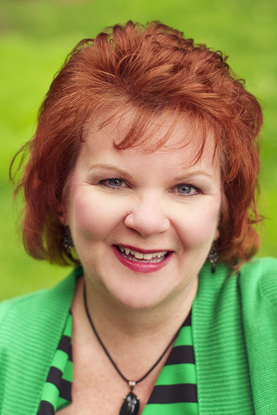 Author Website: MesuAndrews.com/ Author Twitter: twitter.com/MesuAndrews Author Facebook: www.facebook.com/MesuAndrews Author Pinterest: www.pinterest.com/mesuandrews/
0 Comments
Leave a Reply. |
Follow meArchives
May 2024
Categories
All
|

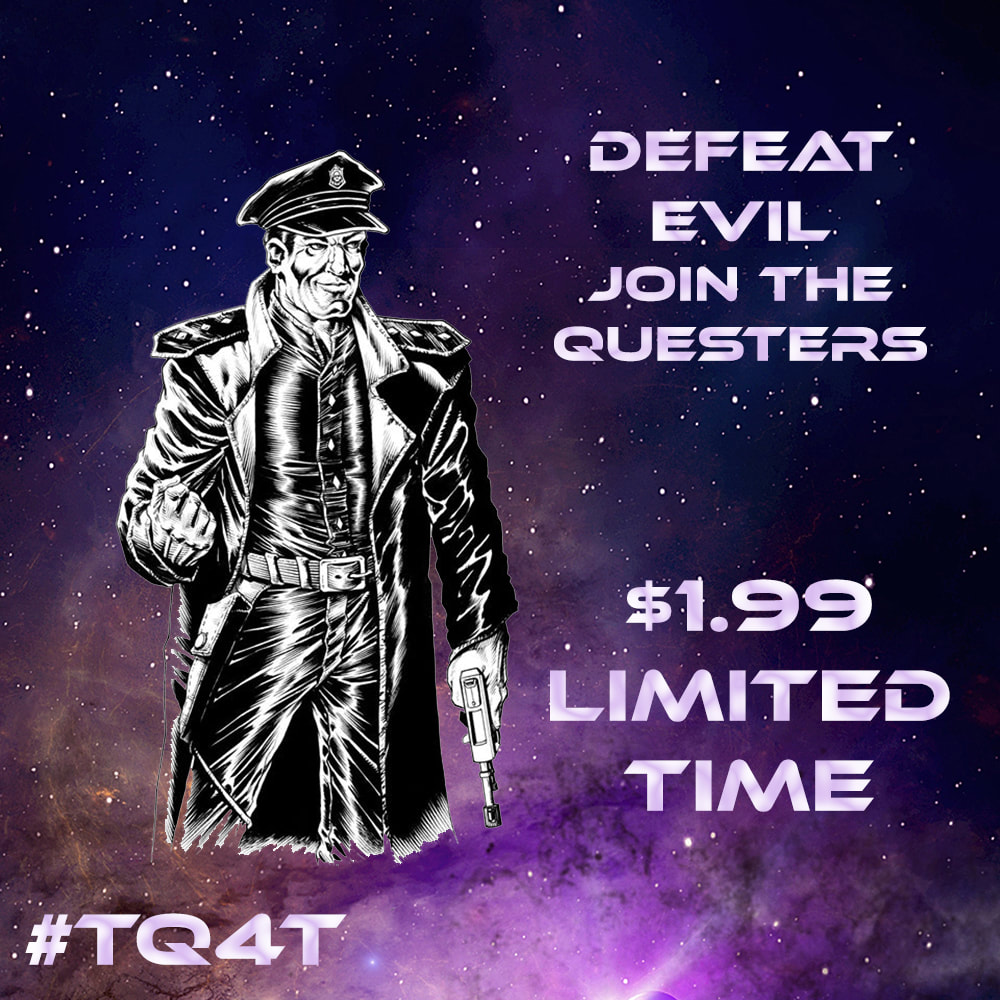
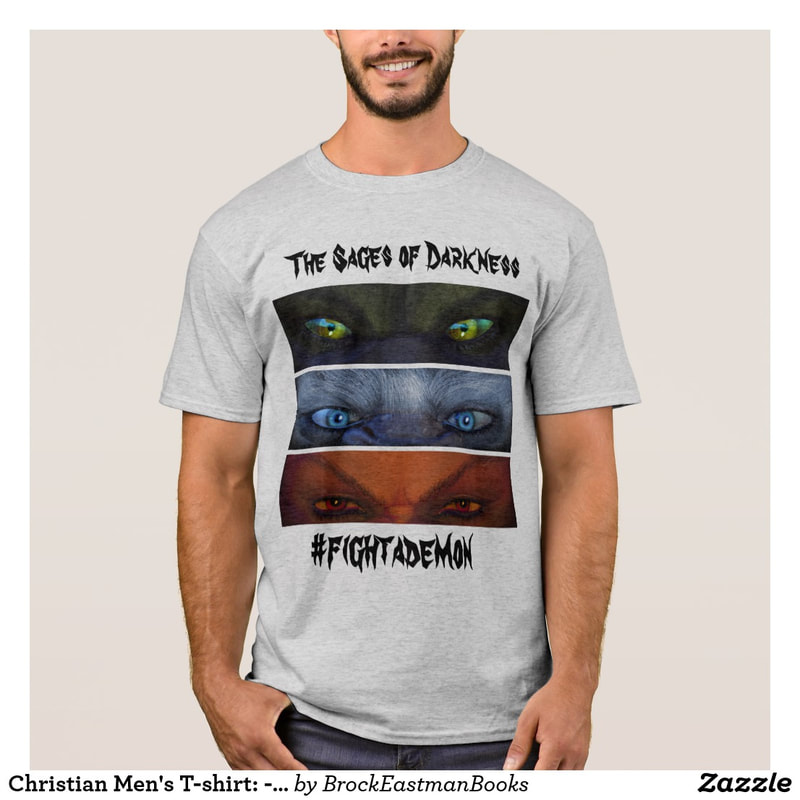

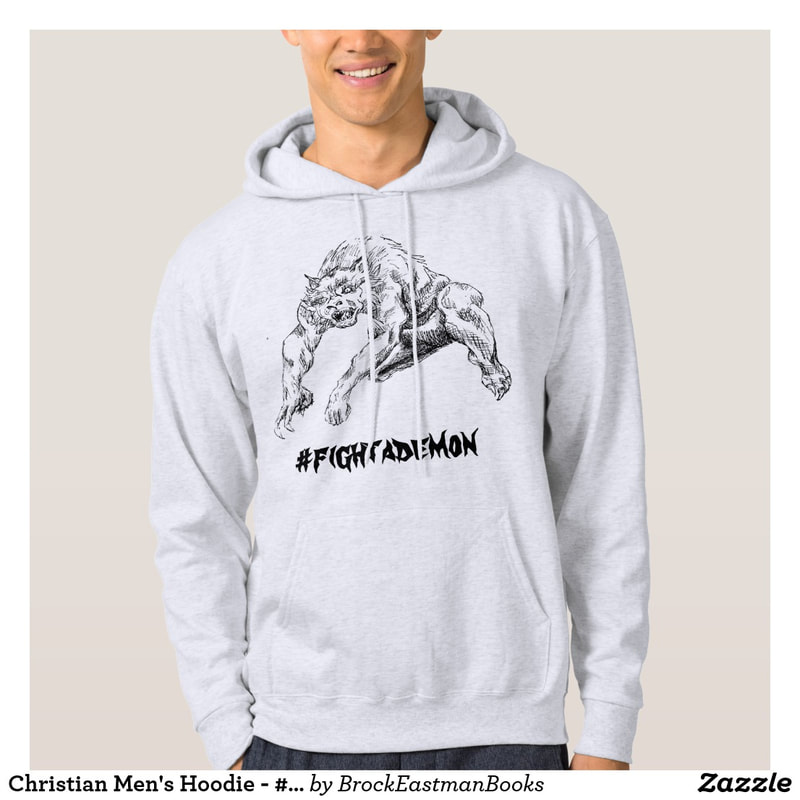
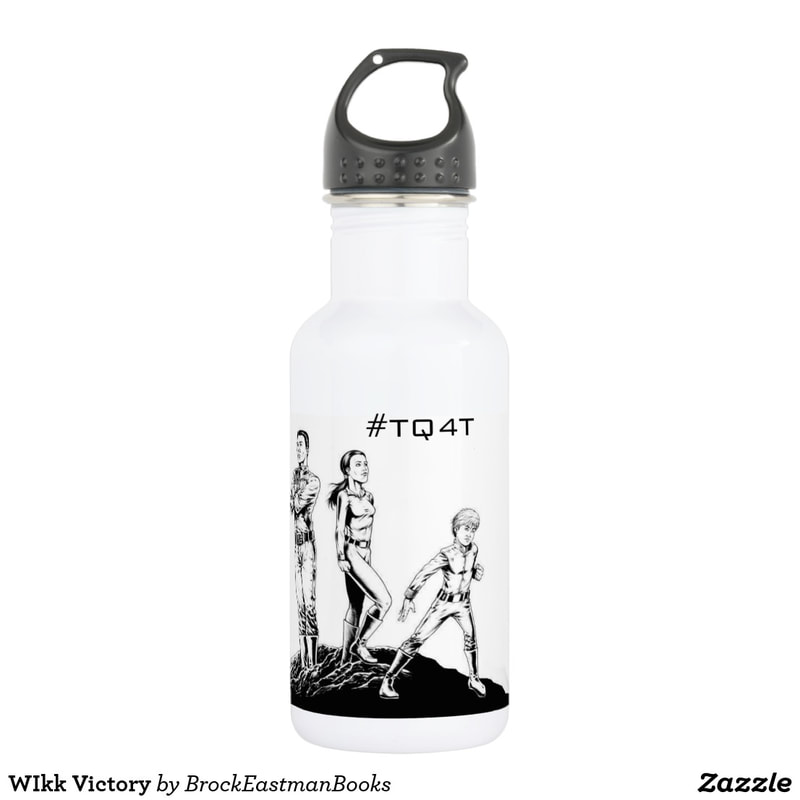
 RSS Feed
RSS Feed